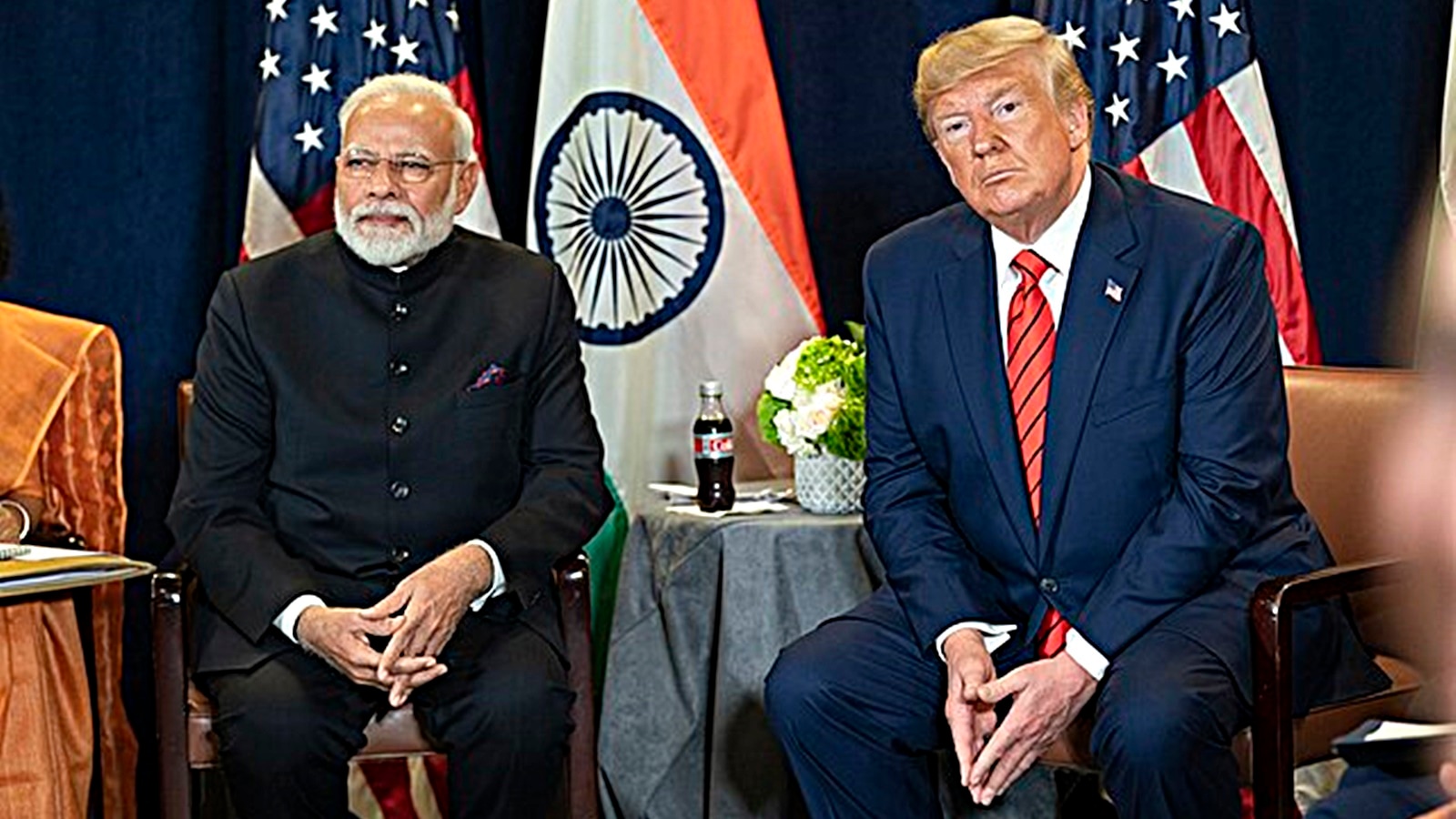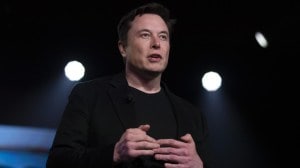Stay updated with the latest - Click here to follow us on Instagram
Trump to announce reciprocal tariffs ahead of PM Modi’s visit, confirms White House
“I do believe it will come before the prime minister’s visit tomorrow,” press secretary Karoline Leavitt told reporters at the White House when questioned about Trump’s forthcoming announcement.
 Donald Trump’s second term compels India and other nations to reassess their strategies for engaging with global institutions. (Wikimedia commons)
Donald Trump’s second term compels India and other nations to reassess their strategies for engaging with global institutions. (Wikimedia commons)Hours before PM Narendra Modi is set to meet President Donald Trump, White House on Wednesday said that Trump could announce his reciprocal tariff plan before he meets with Indian Prime Minister on Thursday.
“I do believe it will come before the prime minister’s visit tomorrow,” press secretary Karoline Leavitt told reporters at the White House when questioned about Trump’s forthcoming announcement.
She added, “I will let the president discuss the details on the reciprocal tariff front, but this is something he believes strongly in.”
Trump said Sunday that he planned to slap reciprocal tariffs on “every country” that imposes import duties on the US.
“It’s time to be reciprocal,” Trump said on Air Force One, NBC News reported. “You’ll be hearing that word a lot. Reciprocal. If they charge us, we charge them.”
Explaining on why tariffs are crucial, Leavitt said, “It’s very simple logic as to why the President wants to impose reciprocal tariffs, it’s the golden rule which we all learned when we were growing up in school – Treat others the way, you want to be treated, and far too many nations around this world have been ripping off the United States of America for far too long and that’s why the President believes this will be a great policy.”
India-Trump-tariff
Trump has not held back his frustration over India’s high tariffs, labelling the country a “very big abuser” and accusing it of blocking US imports.
With the almost $200 billion bilateral trade, what irks Trump is the $40-50 billion surplus that is in India’s favour.
And, while Trump has emphasised his desire for a trade relationship with India that is more “fair,” Delhi has already signalled its willingness to negotiate a limited trade deal to address Washington’s concerns over market access.
On Monday, Trump closed exemptions to his 2018 tariffs on steel and aluminium, while also raising the tariff rates on aluminium. He has also floated the idea of imposing further tariffs on imported automobiles, computer chips, and pharmaceutical drugs.
The tariffs rattled India’s steel and aluminium industries threatening billions of dollars in exports each year. The Indian Steel Association warned on Tuesday that the steel tariff alone could cut exports to the US by 85%, significantly impacting the sector.
The discussions are expected to be a key focus during Prime Minister Narendra Modi’s visit to the US, where he will meet Trump for high-level talks.
Since taking office less than a month ago, Trump has aggressively pursued a series of tariffs, fully embracing a protectionist economic strategy. The move signals his belief that his policies will ultimately benefit American voters—despite acknowledging that the import taxes could lead to inflation and economic disruptions. The impact of these measures will largely depend on their specifics and how other nations react.
One of Trump’s key moves has been imposing 10% tariffs on China for its role in the production of fentanyl, a powerful synthetic opioid. In response, China has introduced retaliatory measures. Additionally, Trump has warned that if necessary, he will impose tariffs on Mexico and Canada starting March 1—after a 30-day suspension—citing concerns over illegal immigration and drug smuggling.
- 01
- 02
- 03
- 04
- 05































